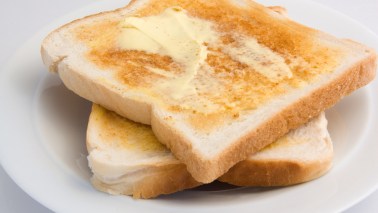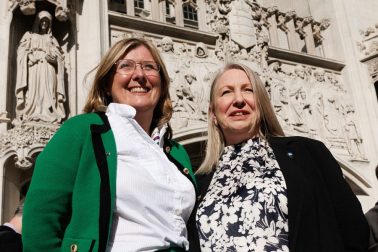Howard Jacobson has called Kalooki Nights ‘the most Jewish novel that has ever been written by anybody, anywhere’. What does this mean? It is a novel whose hero, Max Glickman, is Jewish. It is a history of two Jewish families living in Manchester, the Glickmans and the Washinskys, and a study of the degrees by which successive generations adapt to English society and English culture. It is a book full of Jewish words and phrases, Jewish customs and Jewish friends and relatives. In fact the only non-Jews in the book are either Max’s wives and girlfriends (a plentiful crew), his sister’s boyfriend Mick, and Dorothy, the half-German girlfriend of his neighbour Asher Washinsky. Oh, and a rather odd TV producer named Francine.
In a lecture he gave in January at the London Jewish Cultural Centre, Jacobson said, ‘For us [Jews] to be truly convinced we are reading Jewish literature, we must read about the Holocaust. To be interesting to ourselves as Jews, in short, we have to be in crisis’, but, he continued, ‘we have been in this country a while now. The story of our finely tuned accommodations to English culture is a fascinating one, sometimes tragic, often heroic, always funny … it is time we told it.’ So this is the mission of his latest novel.
Actually Jacobson combines both stories: Max Glickman grows up in Manchester, grows into English society, and is also obsessed by the Holocaust. At the impressionable age of 11 he swaps a stack of comics for a book called The Scourge of the Swastika: A Short History of Nazi War Crimes. He can’t get enough of it, reading it in secret because his father ‘was thinking up ways to make Jewishness less of a burden to the Jews’ — moving on from the Holocaust being one way. Mr Glickman doesn’t succeed with Max, who becomes fascinated by the tortures perpetrated in the death camps, in particular those conducted by German women on Jews. Max and his peculiar friend Manny Washinsky (who lent him the book) spend much of their boyhood together, hiding in the air raid shelter and discussing which methods of torture were preferred by whom.
Sex, comics and the Holocaust are thus inextricably tangled in Max’s mind and he grows up to be a cartoonist, drawing funny pictures about the oppression of Jews and Jewish behaviour, and to marry three Gentile women who seem to enjoy bullying him for being Jewish (‘Why do you have to look so Jewish all the time?’ queries wife number two). Manny Washinsky takes even more away from the air raid shelter with him than Max does. He is odd as a child, angry as a teenager and locked up in prison as an adult for a hideous double murder. Jacobson’s book is set both in the past and in the present day, during the aftermath of Manny’s release when Francine has asked Max to help her make a TV programme about Manny.
Kalooki Nights is very funny, which is a huge relief, because these aren’t funny topics (the Holocaust, murder, the oppression of a religious minority) and every character has something serious to say about Jewishness on almost every page. It is a rich, dense book, and strangely overwhelming — not so much like reading a novel as sharing a train carriage with its narrator. You have only just settled down in your seat when he starts talking, and he doesn’t stop. Your heart sinks, you think he might be a bore, and you might be right. But don’t panic, it’s worth staying put. There is much to learn and a good deal to enjoy.





Comments